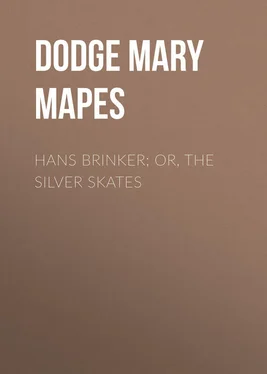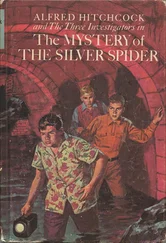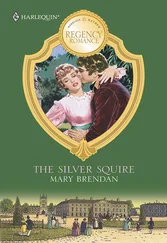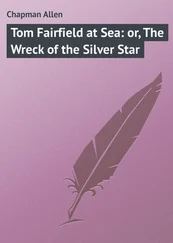Mary Dodge - Hans Brinker; Or, The Silver Skates
Здесь есть возможность читать онлайн «Mary Dodge - Hans Brinker; Or, The Silver Skates» — ознакомительный отрывок электронной книги совершенно бесплатно, а после прочтения отрывка купить полную версию. В некоторых случаях можно слушать аудио, скачать через торрент в формате fb2 и присутствует краткое содержание. Жанр: foreign_antique, foreign_prose, на английском языке. Описание произведения, (предисловие) а так же отзывы посетителей доступны на портале библиотеки ЛибКат.
- Название:Hans Brinker; Or, The Silver Skates
- Автор:
- Жанр:
- Год:неизвестен
- ISBN:нет данных
- Рейтинг книги:4 / 5. Голосов: 1
-
Избранное:Добавить в избранное
- Отзывы:
-
Ваша оценка:
- 80
- 1
- 2
- 3
- 4
- 5
Hans Brinker; Or, The Silver Skates: краткое содержание, описание и аннотация
Предлагаем к чтению аннотацию, описание, краткое содержание или предисловие (зависит от того, что написал сам автор книги «Hans Brinker; Or, The Silver Skates»). Если вы не нашли необходимую информацию о книге — напишите в комментариях, мы постараемся отыскать её.
Hans Brinker; Or, The Silver Skates — читать онлайн ознакомительный отрывок
Ниже представлен текст книги, разбитый по страницам. Система сохранения места последней прочитанной страницы, позволяет с удобством читать онлайн бесплатно книгу «Hans Brinker; Or, The Silver Skates», без необходимости каждый раз заново искать на чём Вы остановились. Поставьте закладку, и сможете в любой момент перейти на страницу, на которой закончили чтение.
Интервал:
Закладка:
The boys caught his meaning. Every skate was off in a twinkling. Peter had the presence of mind to scoop up a cap-full of water from the hole, and off they scampered to the rescue.
Alas! They did indeed find poor Jacob in a fit – but it was a fit of sleepiness. There he lay in a recess of the gallery, snoring like a trooper! The chorus of laughter that followed this discovery brought an angry official to the spot.
"What now! None of this racket! Here, you beer-barrel, wake up!" and Master Jacob received a very unceremonious shaking.
As soon as Peter saw that Jacob's condition was not serious, he hastened to the street to empty his unfortunate cap. While he was stuffing his handkerchief to prevent the already frozen crown from touching his head, the rest of the boys came down, dragging the bewildered and indignant Jacob in their midst.
The order to start was again given. Master Poot was wide awake at last. The ice was a little rough and broken just there, but every boy was in high spirits.
"Shall we go on by the canal or the river?" asked Peter.
"Oh, the river, by all means," said Carl. "It will be such fun; they say it is perfect skating all the way, but it's much farther."
Jacob Poot instantly became interested.
" I vote for the canal!" he cried.
"Well, the canal it shall be," responded the captain, "if all are agreed."
"Agreed!" they echoed, in rather a disappointed tone – and Captain Peter led the way.
"All right – come on – we can reach Haarlem in an hour!"
XI
BIG MANIAS AND LITTLE ODDITIES
While skating along at full speed, they heard the cars from Amsterdam coming close behind them.
"Hollo!" cried Ludwig, glancing toward the rail-track – "who can't beat a locomotive? Let's give it a race!"
The whistle screamed at the very idea – so did the boys – and at it they went.
For an instant the boys were ahead, hurrahing with all their might – only for an instant, but even that was something.
This excitement over, they began to travel more leisurely, and indulge in conversation and frolic. Sometimes they stopped to exchange a word with the guards who were stationed at certain distances along the canal. These men, in Winter, attend to keeping the surface free from obstruction and garbage. After a snow-storm they are expected to sweep the feathery covering away before it hardens into a marble pretty to look at but very unwelcome to skaters. Now and then the boys so far forgot their dignity as to clamber among the ice-bound canal-boats crowded together in a widened harbor off the canal, but the watchful guards would soon spy them out and order them down with a growl.
Nothing could be straighter than the canal upon which our party were skating, and nothing straighter than the long rows of willow trees that stood, bare and wispy, along the bank. On the opposite side, lifted high above the surrounding country, lay the carriage road on top of the great dyke built to keep the Haarlem Lake within bounds; stretching out far in the distance until it became lost in a point, was the glassy canal with its many skaters, its brown-winged ice-boats, its push-chairs and its queer little sleds, light as cork, flying over the ice by means of iron-pronged sticks in the hands of the riders. Ben was in ecstasy with the scene.
Ludwig van Holp had been thinking how strange it was that the English boy should know so much of Holland. According to Lambert's account he knew more about it than the Dutch did. This did not quite please our young Hollander. Suddenly he thought of something that he believed would make the "Shon Pull" open his eyes; he drew near Lambert with a triumphant:
"Tell him about the tulips!"
Ben caught the word " tulpen ."
"Oh! yes," said he eagerly, in English, "the Tulip Mania – are you speaking of that? I have often heard it mentioned, but know very little about it. It reached its height in Amsterdam, didn't it?"
Ludwig moaned; the words were hard to understand, but there was no mistaking the enlightened expression on Ben's face; Lambert, happily, was quite unconscious of his young countryman's distress as he replied:
"Yes, here and in Haarlem, principally; but the excitement ran high all over Holland, and in England too for that matter."
"Hardly in England, 18 18 Although the Tulip Mania did not prevail in England as in Holland, the flower soon became an object of speculation and brought very large prices. In 1636, Tulips were publicly sold on the Exchange of London. Even as late as 1800, a common price was fifteen guineas for one bulb. Ben did not know that in his own day a single Tulip plant, called the "Fanny Kemble" had been sold in London for more than 70 guineas. Mr. Mackay in his "Memoirs of Popular Delusions" tells a funny story of an English botanist who happened to see a tulip bulb lying in the conservatory of a wealthy Dutchman. Ignorant of its value, he took out his penknife and, cutting the bulb in two, became very much interested in his investigations. Suddenly the owner appeared, and pouncing furiously upon him, asked him if he knew what he was doing. "Peeling a most extraordinary onion," replied the philosopher. "Hundert tousant tuyvel!" shouted the Dutchman, "it's an Admiral Vander Eyk!" "Thank you," replied the traveler, immediately writing the name in his note book; "pray are these very common in your country?" "Death and the tuyvel!" screamed the Dutchman, "come before the Syndic and you shall see!" In spite of his struggles the poor investigator, followed by an indignant mob, was taken through the streets to a magistrate. Soon he learned to his dismay that he had destroyed a bulb worth 4,000 florins ($1,600). He was lodged in prison until securities could be procured for the payment of the sum.
I think," said Ben, "but I am not sure, as I was not there at the time."
"Ha! ha! that's true, unless you are over two hundred years old. Well, I tell you, sir, there was never anything like it before nor since. Why, persons were so crazy after tulip bulbs in those days, that they paid their weight in gold for them."
"What, the weight of a man?" cried Ben, showing such astonishment in his eyes, that Ludwig fairly capered.
"No, no, the weight of a bulb . The first tulip was sent here from Constantinople about the year 1560. It was so much admired that the rich people of Amsterdam sent to Turkey for more. From that time they grew to be the rage, and it lasted for years. Single roots brought from one to four thousand florins; and one bulb, the Semper Augustus, brought fifty-five hundred."
"That's more than four hundred guineas of our money," interposed Ben.
"Yes, and I know I'm right, for I read it in a translation from Beckman, only day before yesterday. Well, sir, it was great. Every one speculated in Tulips, even the barge-men and rag-women, and chimney-sweeps. The richest merchants were not ashamed to share the excitement. People bought bulbs and sold them again at a tremendous profit without ever seeing them. It grew into a kind of gambling. Some became rich by it in a few days, and some lost everything they had. Land, houses, cattle and even clothing went for Tulips when people had no ready money. Ladies sold their jewels and finery to enable them to join in the fun. Nothing else was thought of. At last the States-general interfered. People began to see what geese they were making of themselves, and down went the price of Tulips. Old tulip debts couldn't be collected. Creditors went to law, and the law turned its back upon them; debts made in gambling were not binding, it said. Then, there was a time! Thousands of rich speculators reduced to beggary in an hour. As old Beckman says, 'the bubble was burst at last.'"
"Yes, and a big bubble it was," said Ben, who had listened with great interest. "By the way, did you know that the name Tulip came from a Turkish word, signifying turban?"
Читать дальшеИнтервал:
Закладка:
Похожие книги на «Hans Brinker; Or, The Silver Skates»
Представляем Вашему вниманию похожие книги на «Hans Brinker; Or, The Silver Skates» списком для выбора. Мы отобрали схожую по названию и смыслу литературу в надежде предоставить читателям больше вариантов отыскать новые, интересные, ещё непрочитанные произведения.
Обсуждение, отзывы о книге «Hans Brinker; Or, The Silver Skates» и просто собственные мнения читателей. Оставьте ваши комментарии, напишите, что Вы думаете о произведении, его смысле или главных героях. Укажите что конкретно понравилось, а что нет, и почему Вы так считаете.












